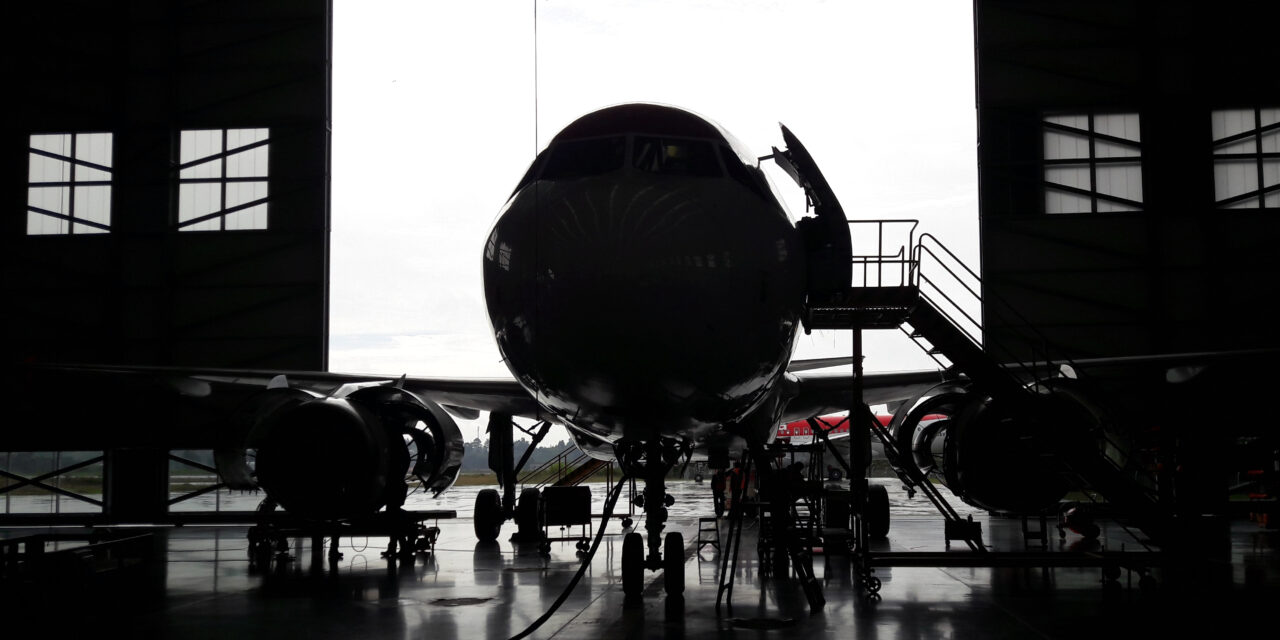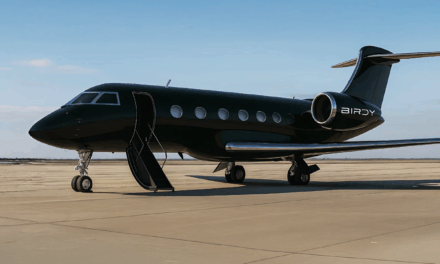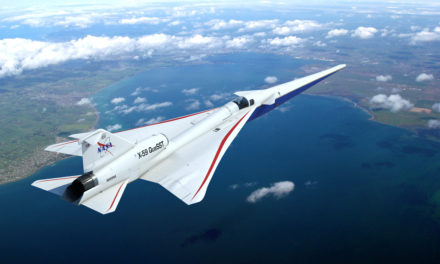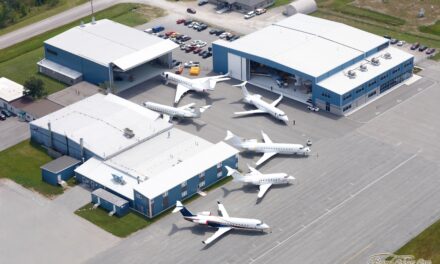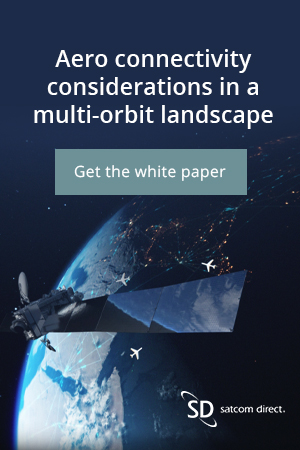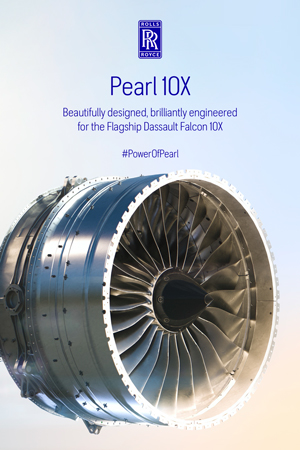By Sylvie Peron – © Boutsen Aviation
Buying a pre-owned aircraft is a big investment, and buyers want to make sure they are getting the best value for their money. This is where the Pre-Purchase Inspection (PPI) comes in, which may come across as a turning point in an aircraft transaction. The PPI is a thorough examination preferably conducted by a Maintenance Repair Organization (MRO) before purchasing an aircraft. The purpose of the inspection is to assess the aircraft’s condition, performance, and safety as well as to identify any issues or discrepancies that may affect the aircraft’s value or safety.
As explained by Boutsen Aviation President Dominique Trinquet, “This in-depth survey is like a detective investigation, giving an inside look at its condition, maintenance history, and any red flags clients should know about.”
“Managing a PPI requires a considerable level of technical knowledge and expertise, and our team is well-equipped to oversee this intricate process with their specialized skills,” comments Boutsen Aviation’ Sales Manager Western Europe Margaux Bodard.
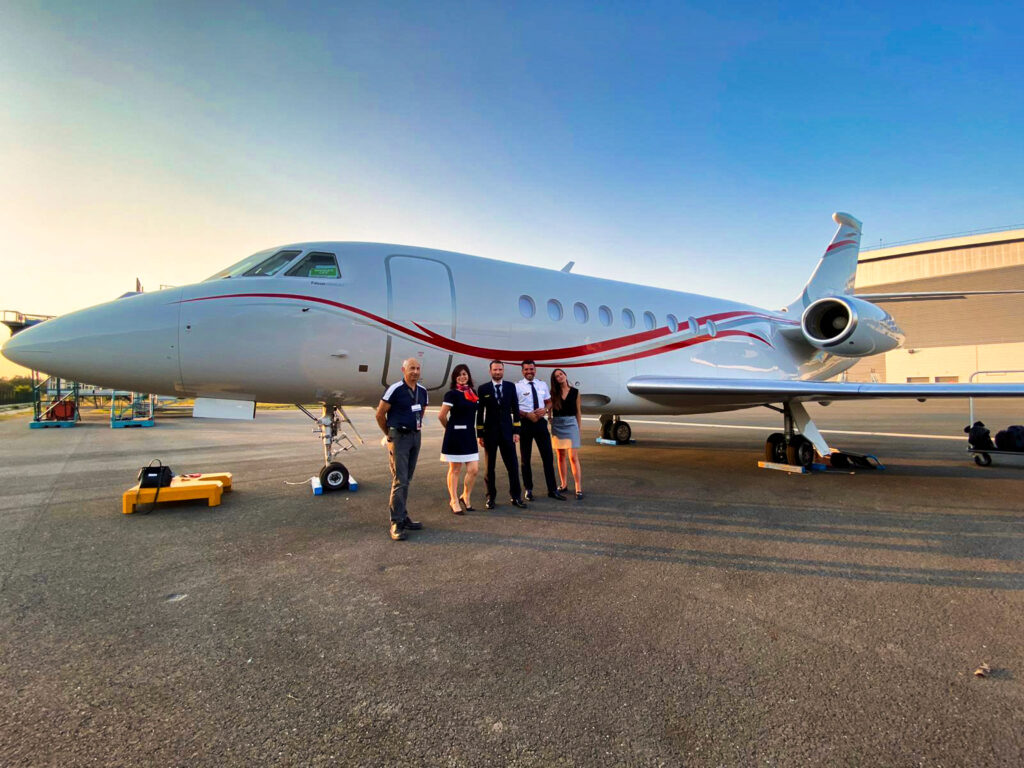
Margaux’s proficiency in aircraft maintenance stems from her previous roles as Regional Sales Manager for UK & France at Dassault MRO Network and as Customer Project Manager dedicated to Netjet’s Falcon Fleet of F2000EXy. Through these experiences, she gained valuable practical knowledge in supervising aircraft maintenance projects and developed a comprehensive understanding of the intricate details and challenges involved in aircraft inspections.
This knowledge proves invaluable when it comes to overseeing the physical inspection and documentation review that comprise the PPI, where any signs of corrosion are assessed, and the aircraft’s maintenance history is reviewed.
The PPI typically occurs between the signing of the Aircraft Purchase Agreement (APA) and the Closing. After the buyer submits a Letter of Intent (LOI) to the seller, the sales conditions are negotiated, including a brief list of inspections the buyer wishes to conduct on the aircraft. Once both parties agree on the terms and conditions, the sale agreement is contracted in the APA. The responsibility for covering the cost of the inspection falls on the buyer; however, if a certain category of issues is found, the expenses required to address those specific findings are the seller’s responsibility.
“Our role is crucial as we act as a mediator between the buyer and the seller. We coordinate and facilitate the inspection process, ensuring that it runs smoothly, any issues are promptly addressed, and technical problems are resolved,” says Trinquet. “Our experience enables us to offer valuable insights and knowledge gained through years of practical experience.”
The Boutsen Aviation sales team empowers clients with essential information and resources to efficiently deal with aircraft maintenance, including expert knowledge of maintenance needs and awareness of upcoming requirements.
According to Margaux Bodard, “One of our key responsibilities is to provide insightful guidance on anticipated maintenance needs, ensuring that both parties are well-informed of upcoming requirements and that PPI scope outlined in the contract is complied with. In addition, we closely monitor the inspection to ensure timely completion within timeframe, while also verifying contract programs and supporting the work of CAMO on both the buyer and seller side.“
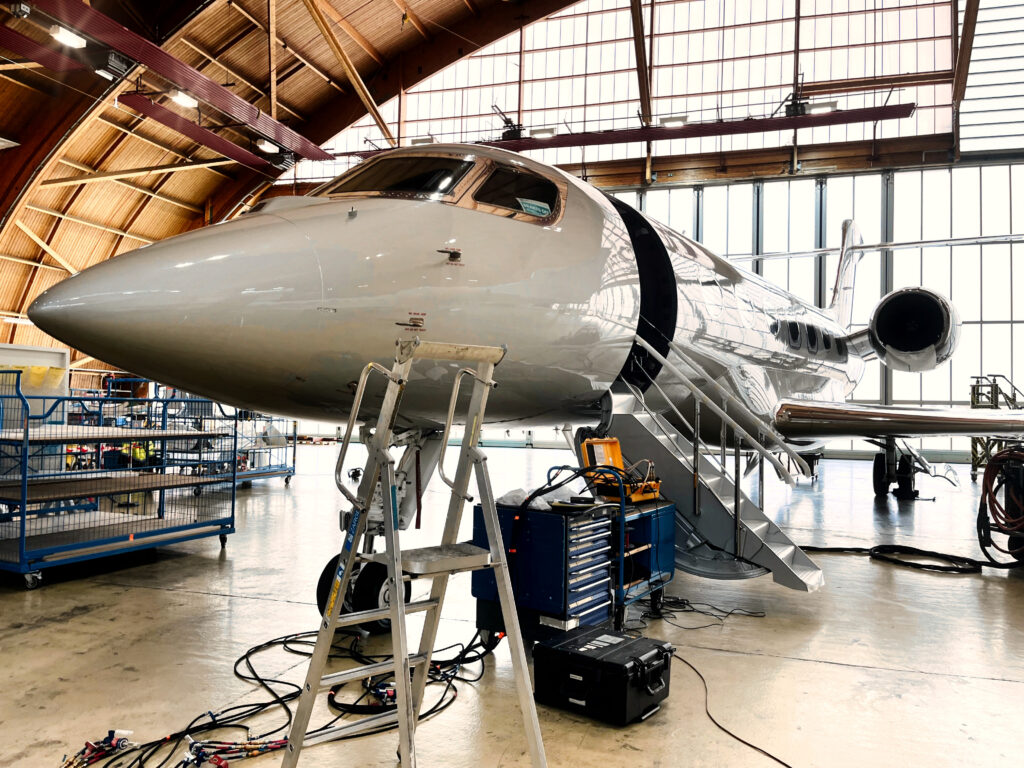
It is the buyer’s duty to gather the quotations and slots availability from the MROs they are considering for scheduling this inspection as early as possible in the buying process.
To ensure compliance with industry standards and regulations, the MRO can either be owned, or approved by the manufacturer, meaning the same level of quality will be delivered, or fully independent. In any case the engineers working on the aircraft must have been trained by an EASA/FAA dedicated training center on this specific aircraft type. Most of the time, the chosen MRO is close to the home base or current location of the aircraft to avoid paying for a position flight that is usually at the buyer’s expense.
“Typically, we encourage our customers to choose a different MRO for the PPI than the one that regularly maintains the aircraft to ensure impartiality and avoid conflicts of interest,” points out Bodard. “Each Service Center has its own inspections packages, or level of inspection that can be tailored made to fit the buyer’s wishes. These packages have been sharpened through time and experience and are specific to the aircraft type.”
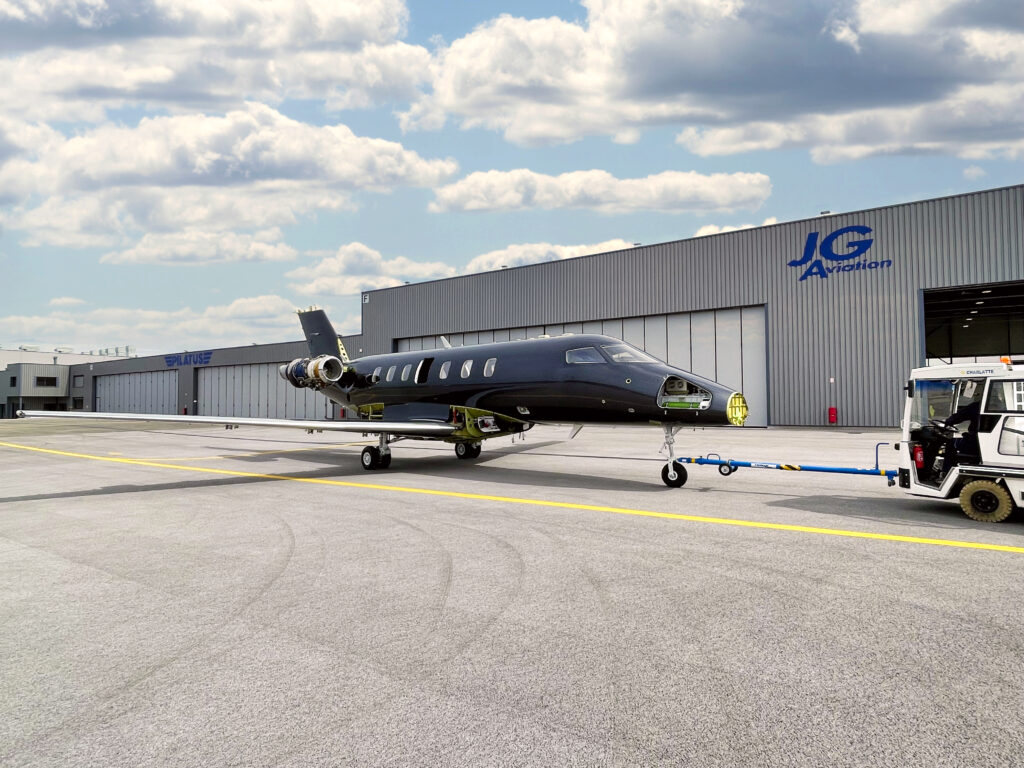
Some Manufacturers such as Gulfstream have standardized the PPI for their fleet and created an Aircraft Records and Condition Survey (ARCS) that also includes a test flight with Gulfstream’s Crew. The ARCS can be performed in any MRO owned or approved by Gulfstream.
The duration of the inspection is agreed upon with the MRO during ordering, but the downtime to fix the findings varies based on the depth of the inspection. Each finding is categorized as either airworthiness or “cosmetics only”. The MRO and its engineers are the only ones able to categorize the findings based under the authority and the Original Equipment Manufacturers (OEM) Manual.
On one hand, if a finding is considered “airworthy,” it indicates that the aircraft is not safe to fly with the issue and must be fixed according to the appropriate manual before releasing the aircraft to service.
On the other hand, if the finding is classified as “cosmetics only,” it implies that the problem is purely superficial and can be left as is, despite not being functioning or shaded.
All findings are listed in a PPI report that is shared with both buyer and seller when all inspections are done. The seller will then have to rectify the airworthiness items so that the buyer can technically accept the aircraft. Should the buyer decide not to technically accept the aircraft, the transaction will end in accordance with the terms of the APA.
“Overall, our parallel proficiency in aircraft maintenance serves as invaluable support for the buyer and seller, facilitating effective management of all aircraft transaction aspects,” concludes Founder & Chairman Thierry Boutsen.
When done right, the PPI gives peace of mind and ensures a reliable asset for a proud and happy owner.

